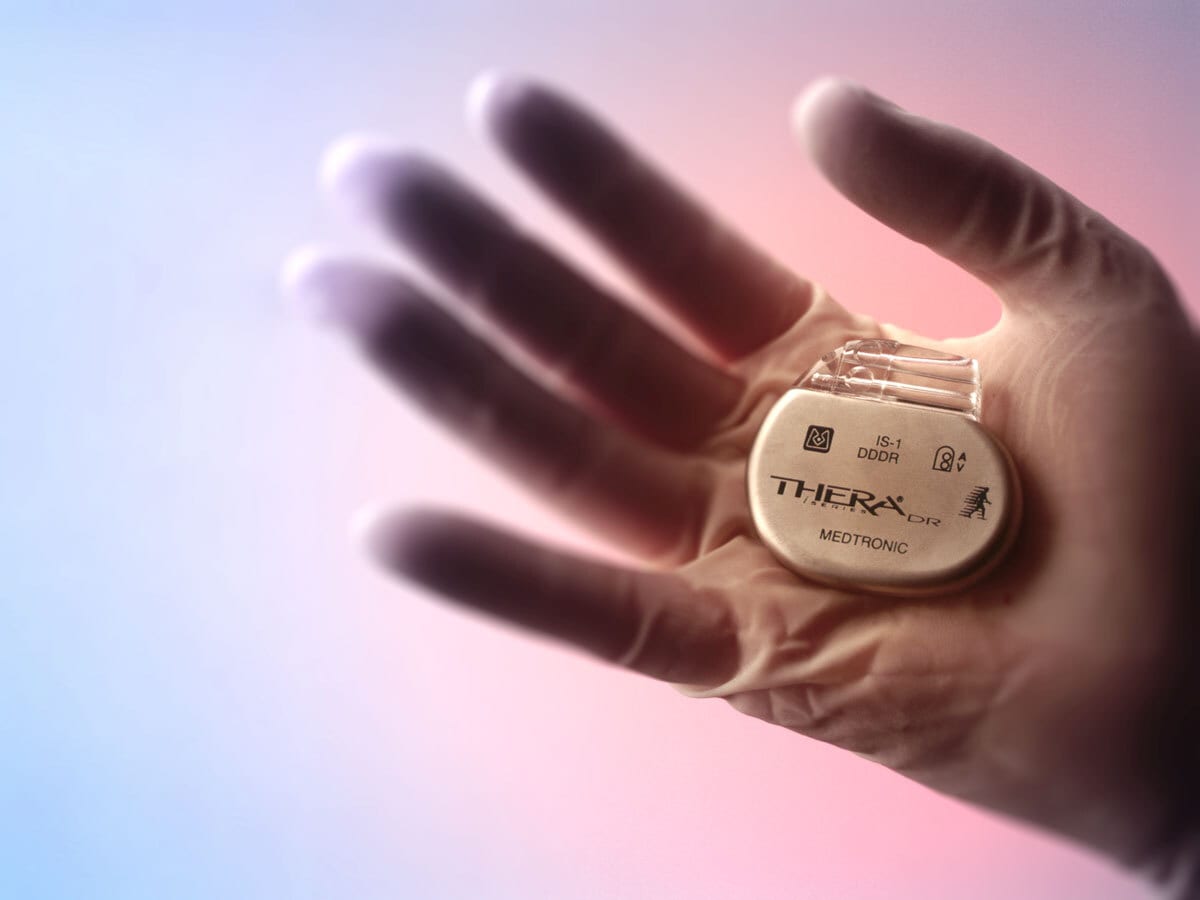Medtronic [MDT] is a US-based manufacturer of medical devices and equipment for treating conditions including cardiovascular disease and diabetes, as well as use in robot-assisted surgery.
The company was the world’s top medical device maker by total revenue as of October 2024, ahead of Johnson & Johnson [JNJ] in second place and Abbott [ABT] in third.
This stock spotlight will look at how Medtronic should grow its share of the cardiac care market as well as discuss its recent financial performance ahead of its Q2 2025 results, being delivered after the close on November 19. It will also look at any headwinds the company might face in the near term.
Positive Trial Results for Cardiac Care Device
Back in September, Medtronic shared the final results of a global trial of its extravascular implantable cardioverter defibrillator (EV ICD), which delivers painless shocks to stop fast, irregular or life-threatening heartbeats. The study of 356 patients across 17 countries over a period of 18 months confirmed the safety of the EV ICD for those at risk of sudden cardiac arrest.
Transvenous ICDs, where leads run through veins and into the heart, have been around for decades, but can lead to complications. Medtronic says its Aurora EV ICD helps avoid these risks. The device is implanted under the left armpit and the lead under the breastbone.
Medtronic’s Endoflip 300 System, which can help identify esophageal problems that are missed in half of endoscopies, received the EU’s product safety mark in the second week of November.
MDT Stock’s Steady Rise in 2024
The Medtronic share price recorded a 52-week high of $92.68 on October 24, but has since pulled back slightly, closing on November 15 at $87.53.
MDT stock has gained 24.67% in the past 12 months and is up 8.94% since the start of the year.
Medtronic Reports Healthy Revenue Growth
Medtronic’s first quarter of fiscal 2025 was a fairly healthy one. Strong sales in its cardiovascular and diabetes segment helped it deliver better-than-expected growth.
Total revenue rose 5.3% organically year-over-year to $8bn. Cardiovascular sales increased 6.9% organically to $3bn, while the neuroscience segment brought in $2.3bn, up 5.3% organically. The best-performing business unit was diabetes, which saw sales jump 12.6% organically to $647m. Revenue from its medical surgical segment fell slightly.
Medtronic narrowed its full-year revenue forecast from previous guidance of 4–5% growth to a range of 4.5–5%. Earnings guidance was also raised slightly.
“Our underlying markets are healthy, we’re driving operating rigor, and new product innovation is fueling diversified growth across key health tech markets,” said CEO Geoff Martha in the earnings release.
He added on the earnings call in August that “we’re looking to further increase organic investments and are on the hunt for the right tuck-in M&A opportunities”.
In comparison, Johnson & Johnson reported revenue rising 5.2% in its most recent quarter, while Abbott saw sales increase 4.9% for the July–September period.
Medtronic will update the market on demand for its medical devices when it reports results for Q2 2025 on November 19.
Here’s how Medtronic’s fundamentals compare to Abbott’s and Johnson & Johnson’s.
| MDT | ABT | JNJ |
Market Cap | $112.27bn | $201.02bn | $370.77bn |
P/S Ratio | 3.55 | 4.92 | 4.27 |
Estimated Sales Growth (Current Fiscal Year) | 3.82% | 4.71% | 4.25% |
Estimated Sales Growth (Next Fiscal Year) | 4.58% | 7.09% | 2.87% |
Source: Yahoo Finance
Despite the muted revenue growth projected over this fiscal year and next, Medtronic’s P/S ratio is below the 4.1 industry average for medical devices, suggesting that MDT stock could be considered slightly undervalued at its current price.
MDT Stock: The Investment Case
The Bull Case for Medtronic
Medtronic is poised to become a dominant player in the cardiac care market with its Aurora EV ICD, according to GlobalData.
As “clinicians and patients recognize the advantages of this new EV technology”, the company should be able to “potentially capture market share,” said Joselia Carlos, Senior Medical Device Analyst at GlobalData.
The research noted that Medtronic could become a major challenger to Boston Scientific [BSX] in the ICD market. Boston Scientific has dominated with its subcutaneous ICD device, where the lead is inserted under the skin as opposed to through a vein.
“As adoption increases and more clinical data emerges, the Aurora EV ICD is well on its way to transforming cardiac care,” added Carlos.
The Bear Case for Medtronic
While not directly impacting MDT stock, investors should be wary of the lawsuits Medtronic has been, and continues to be, involved in.
In September, a California federal court ruled that medical device maker Axonics — acquired by Boston Scientific on November 15 — did not violate Medtronic’s patent rights when designing its nerve-stimulation technology.
Meanwhile, a Beverly Hills-based surgeon has filed a lawsuit in Delaware claiming that Medtronic infringed her design for a hernia repair mesh product.
In a statement issued to CNBC, Medtronic stressed it “has a long history of respecting the intellectual property rights of other innovators.”
Conclusion
While Medtronic’s revenue growth for the next couple of fiscal years may be muted, it will at least be steady if demand for the company’s medical devices, especially in its cardiovascular segment, increases.
-
OPTO’s proprietary theme relevance system maps the world’s biggest investing megatrends. For in-depth analyses of stocks with high growth potential, subscribe to OPTO Foresight.
Continue reading for FREE
- Includes free newsletter updates, unsubscribe anytime. Privacy policy





